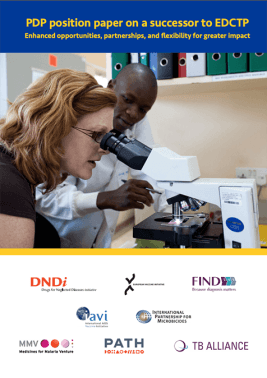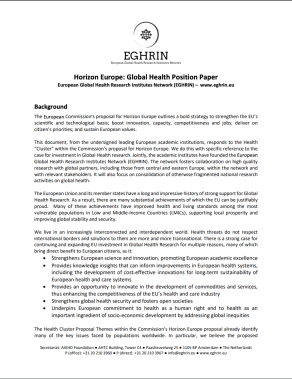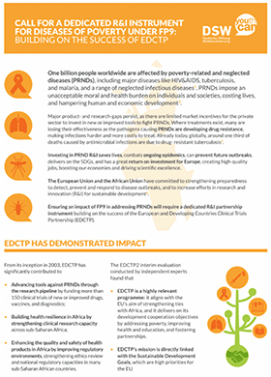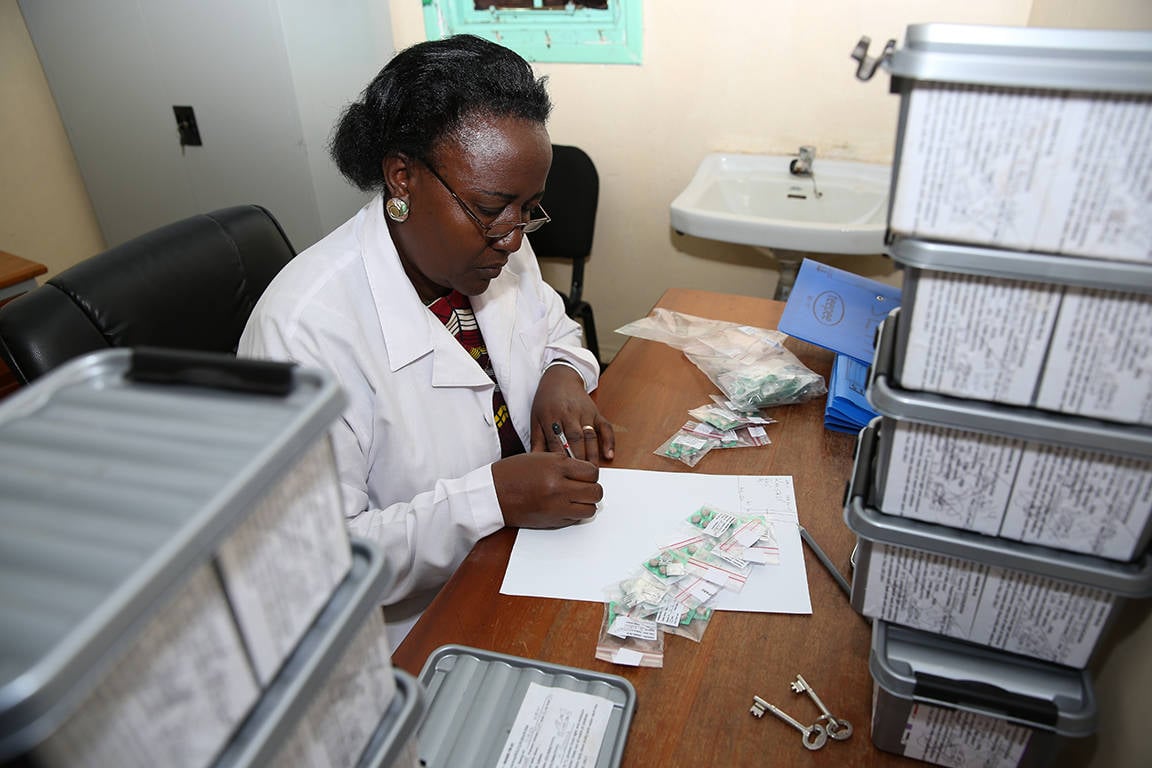
Supporting implementation
research in sub-Saharan Africa
Ana Lúcia Weinberg

In the last decade, funders of global research and development of medical interventions became increasingly aware of the need to address the ‘gap between knowing and doing’. Successful new medical interventions did not find their way into routine health care as a matter of course. The gap stretches from practical implementation of interventions in regular care to ensuring that evidence is taken up as a basis for successful policy-making.
Effective research uptake requires long-term commitments and strong partnerships between funders, research organisations and, most importantly, with host countries to ensure ownership and sustainability. Funders are in a unique position to promote the use of research evidence in health practice and policy-making. The document Seven approaches to investing in implementation research in low- and middle- income countries grew from the recognition that by sharing good practices investments in implementation research can be made more effective and capacity for this form of health research can be built in low- and middle-income countries.
Based on its product-oriented objectives, EDCTP2 extended its portfolio to cover implementation studies on delivery and uptake of medical products. Since then, several calls for proposals have been launched to support this emerging field and ensure that the impact of research and innovation funded by EDCTP is maximised. With this essential step, EDCTP aimed to increase its direct relevance to public health and health services in sub-Saharan Africa
In 2014, its first year, the main EDCTP2 objective was to ensure that research funded under the first programme (2003-2014) would be translated into policy and practice. The Maximising the impact of EDCTP research call for proposals invited consortia supported under the first programme to present plans for research uptake. These would have to address well-known structural and cultural barriers including the limited opportunities for engagement between researchers, policymakers, implementers, and end-users.
The call resulted in several studies that contributed to knowledge transfer and informed national and international policy. Through the TWENDE study, EDCTP supported the creation of centres in several African countries to promote translation of research into policy and practice and facilitate the communication between researchers and policy-makers. The IMPACT study informed WHO policy on the cardiac safety of antimalarials and the WISH study provided data to national decision-makers on the feasibility and cost-effectiveness of introducing point-of-care testing for sexually transmitted diseases in Rwanda.
Implementation research focuses on the ‘how’ of promoting the systematic uptake of proven medical interventions. To achieve a strategic goal – the reduction of the burden of disease in global health – this new research field was included in some funding programmes. The second EDCTP programme (EDCTP2; 2014-2024) is a case in point. It started funding implementation research and corresponding capacity development as well as projects to promote research uptake by policymakers.

The collapse of health systems in Guinea, Liberia and Sierra Leone during the Ebola epidemic made clear that developing health care systems was essential and had to be informed by evidence. As part of the Ebola response, a call for proposals on research capacity development was launched in 2015, a joint initiative with TDR, the Special Programme for Research and Training in Tropical Diseases, and the Medical Research Council (United Kingdom). Of the six projects funded, RECAP-SL, for example, strengthened health research capacity in Sierra Leone. It contributed to rebuilding the health system through the establishment of a coordinating research centre and the development and implementation of evidence-based policies and practices.
Neglected infectious diseases
In 2017, EDCTP focused on supporting implementation research in the area of neglected tropical diseases. Although medical interventions exist for some of the diseases, in many cases they need to be translated into routine care. To achieve disease elimination, population coverage, access and adherence are essential issues to address. The call for proposals Targeting control and elimination of NIDs through product-focused implementation research resulted in three on-going large studies for schistosomiasis - (FibroScHot) - and leprosy - (PEP4LEP and PEOPLE).
Bringing proven products to routine care
Best practices for funding implementation research
Following EDCTP's 2019 call for proposals on product-related implementation research, a large investment has been made in clinical studies to translate medical interventions of proven efficacy into routine care. The first study to have started is the T2RiAD project involving eleven organisations in Europe, Africa, and the US. It will assess the effectiveness, feasibility, acceptability, and cost-effectiveness of implementing the Xpert® MTB/XDR (Cepheid) assay for rapid triage-and-treatment of drug-resistant tuberculosis. The study is expected to provide important findings to improve the diagnosis and treatment of patients with drug-resistant tuberculosis.
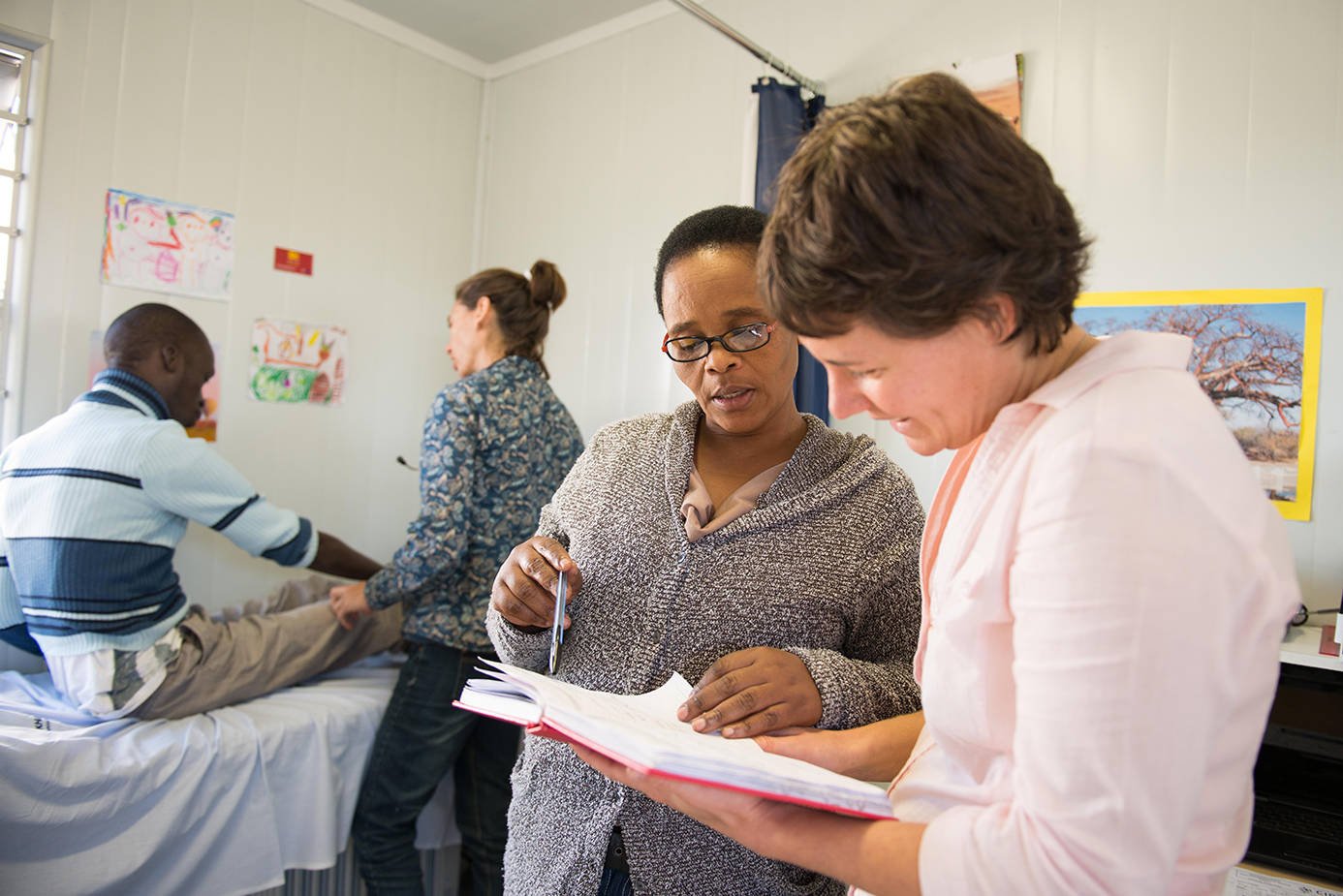
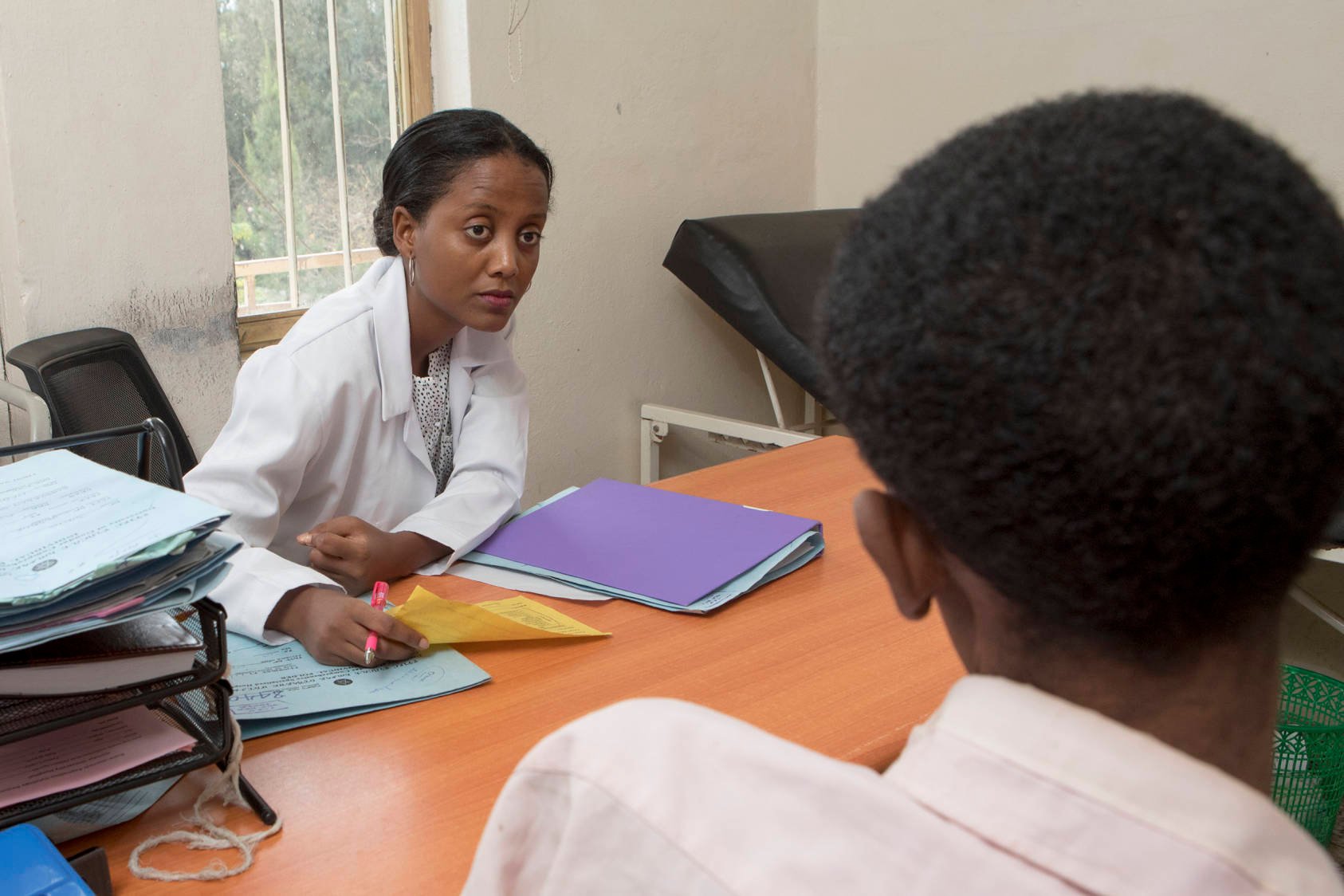
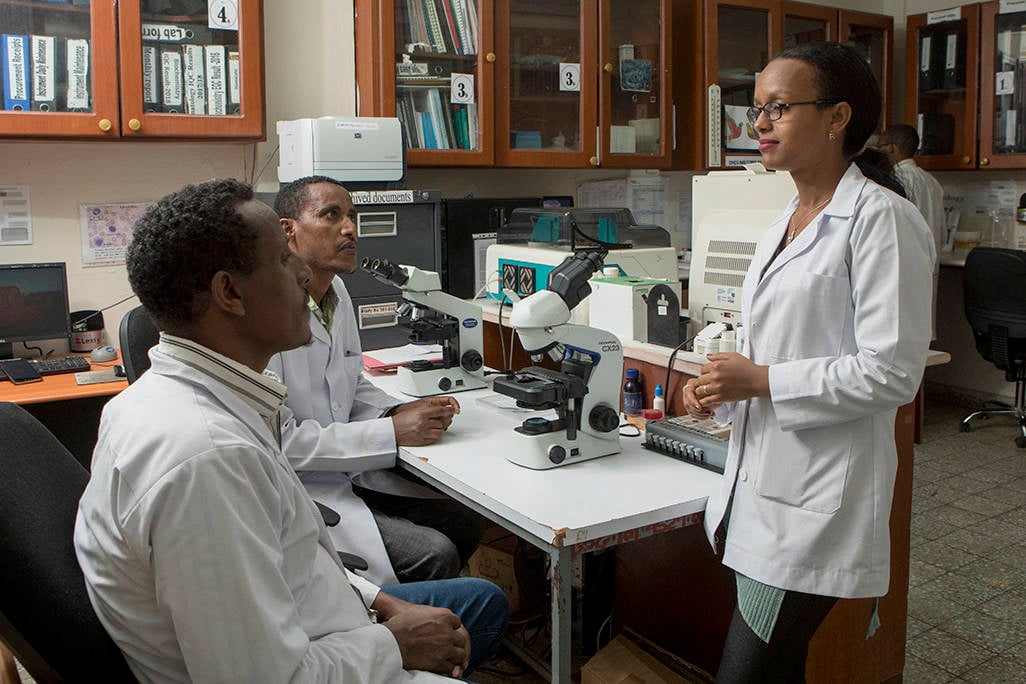
Expansion to implementation research
Responding to the Ebola epidemic
Developing capacity for implementation research
Also in 2017, support from the German Federal Ministry of Education and Research (BMBF), the UK’s Medical Research Council (MRC) and the Swedish International Development Cooperation Agency (Sida) enabled EDCTP to join forces with the WHO Regional Office for Africa (WHO-AFRO- and TDR. WHO AFRO then launched a call focused on implementation research projects. The initiative supported 29 projects in 15 African countries. The projects strengthened capacity for implementation research and supported collaboration between researchers focusing on national disease programmes. The diseases covered were malaria, tuberculosis, diarrhoeal diseases, lower respiratory tract infections, yellow fever, and several neglected tropical diseases.
Independently, EDCTP member countries support implementation research through their national programmes. When recognised as contributions to the objectives of EDCTP2, these activities are considered part of the EDCTP programme, the so-called ‘Participating States' Initiated Activities’. At least € 40 million has been reported as investments in this field by EDCTP member countries. Several European member countries fund the Alliance for Health Policy and Systems Research (AHPSR) and TDR, which promotes the implementation of interventions that reduce the burden of infectious diseases of poverty. The governments of Uganda, Niger, Burkina Faso, Mozambique, and Mali have also contributed in this way to the EDCTP programme by supporting implementation research in their respective countries.
In 2018, EDCTP launched a call for proposals aimed at Capacity development to facilitate delivery and uptake of new or improved medical interventions in African health systems. As a result, research projects are being conducted to advance malaria elimination in Mozambique (ADAM project), to facilitate the delivery and uptake of fexinidazole for the elimination of Human African Trypanosomiasis (FEX-g-HAT) and to tackle implementation challenges for sustainable access and delivery of new vaccines in Ghana (SAVING project).
Since 2008, the ESSENCE on Health Research initiative promotes the collaboration of funding organisations. It aims to address questions of coordination and best practice for maximum impact and publishes guidance documents on funding health research. By sharing good practices, funders can improve how they invest in health research as well as build capacity in low- and middle-income countries.
Given the growing importance of implementation research, a group of ESSENCE members joined forces to develop and promote seven approaches to implementation research for the funding community to adopt. They recommend to:
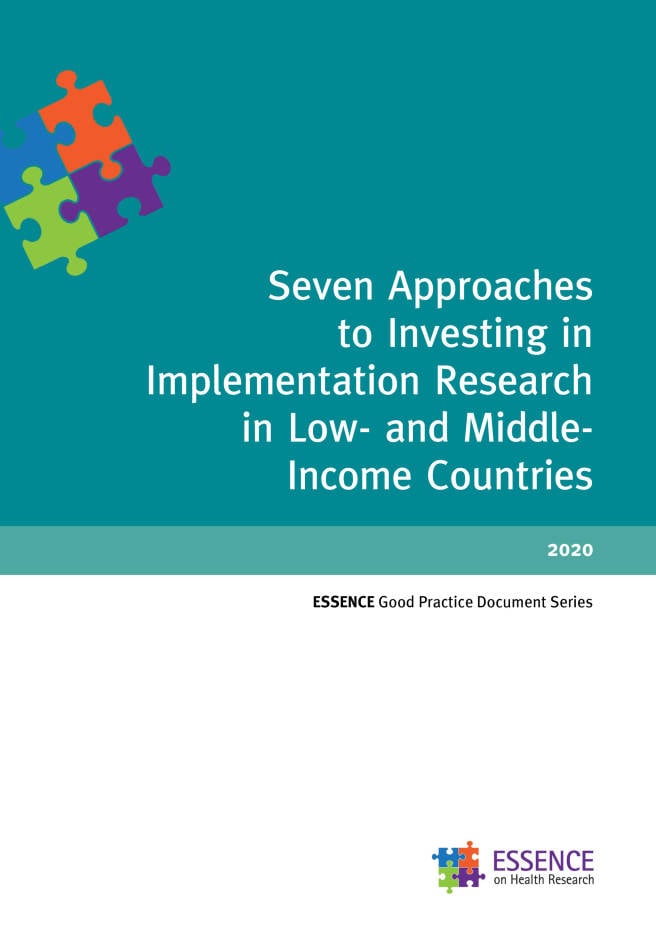
Involve stakeholders from the outset
scroll down
